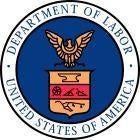WASHINGTON — The U.S. Department of Labor's Office of Workers' Compensation Programs has successfully defended a recent amendment to the Black Lung Benefits Act contained in the Patient Protection and Affordable Care Act. The U.S. Court of Appeals for the 3rd Circuit held in "B & G Construction Co. v. Campbell and Director, Office of Workers' Comp. Programs" that the amendment is constitutional and provides benefits to certain survivors of miners who were entitled to benefits at the time of their deaths.
"This ruling supports our administration of the Byrd amendments in the Patient Protection and Affordable Care Act," said OWCP Acting Director Gary A. Steinberg. "We are committed to providing the benefits that claimants are entitled to under the law — benefits that so many workers and families depend on when black lung has taken away their health and livelihoods."
The Black Lung Benefits Act provides compensation to miners totally disabled by pneumoconiosis, commonly called black lung disease, and their eligible survivors. From 1982 until the PPACA amendment was enacted on March 23, 2010, a survivor, usually the miner's spouse, had to prove that pneumoconiosis caused the miner's death to be entitled to benefits, even if the miner was receiving benefits when he died. But the 3rd Circuit held that the PPACA amendment automatically continues benefits to a miner's eligible survivors if the miner was entitled to benefits prior to death. The court rejected B & G's contention that the amendment is unconstitutional under the due process and takings clauses of the Fifth Amendment.
The amendment applies to claims filed after Jan. 1, 2005, that were pending on or after March 23, 2010. In this case, the deceased miner had worked for B & G for more than 16 years. Because the miner was totally disabled due to pneumoconiosis, he received disability benefits until his death in 2005. Under the PPACA amendment, the court ruled that his surviving spouse is automatically entitled to continuing benefits.
The Office of Workers' Compensation Programs administers several disability benefit programs that cover federal workers, nuclear weapons workers, coal miners, longshore and harbor workers, and civilian contractors of the federal government who work overseas. These programs provide a variety of medical benefits, as well as wage replacement, vocational rehabilitation and other services. Benefits also may be paid to eligible dependents or survivors. For more information, visit http://www.dol.gov/owcp.



 />i
/>i

